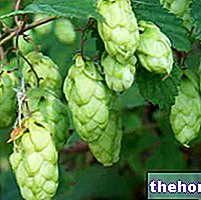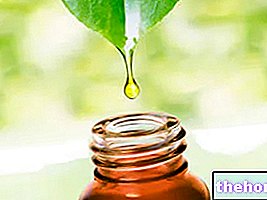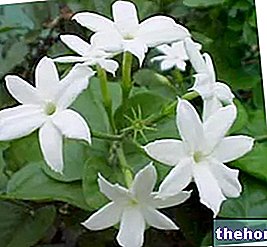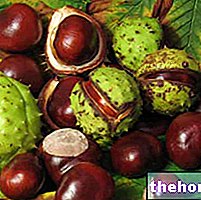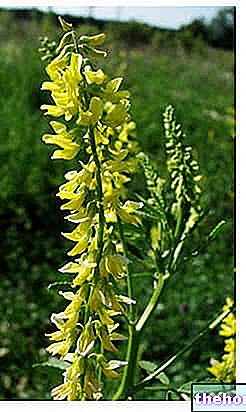
Annoying insects, sometimes carriers of diseases, mosquitoes are considered a real problem to fight during the hottest months.
Fortunately, the transmission of diseases through mosquito bites is not a particularly widespread phenomenon in Italy, however, these insects are extremely annoying and are potentially capable of giving rise to allergic reactions.
With the growing attention towards the use of insecticides and repellents potentially harmful to the environment and the health of both humans and animals, the use of natural remedies against mosquitoes is becoming more and more widespread. Unfortunately, in many cases, these remedies prove unable to stop the "hunger" of these annoying insects.
, rosemary, lemon balm, lavender, mint, eucalyptus, basil and thyme.
Generally, these herbs are grown in gardens, or planted in pots and stored on balconies and terraces in an attempt to keep annoying insects away from these environments. Unfortunately, such natural mosquito remedies often prove ineffective.
Despite this, these aromatic plants - or rather, their extracts - are used in the production of various repellents against mosquitoes.
Did you know that ...
Bats are natural predators of mosquitoes. In addition to the use of aromatic plants, to protect open spaces from these annoying insects, it may be useful to place a bat house (or bat box) near your garden or balcony.
This undoubtedly particular stratagem can represent a potentially effective natural remedy against mosquitoes, so much so that it has been adopted in several Italian cities.
and the essential oil of lemongrass. To these are added also the essential oil of lemon (extracted from the peel of the homonymous fruit), the essential oil of geranium and the Tea Tree Oil (or essential oil of tea tree). In addition to its insect repellent properties, this last oil is also attributed with antifungal and antiparasitic properties exercised above all against lice.
Essential oils are generally applied to the skin in such a way as to act as a natural repellent.
Please Note
Essential oils must NOT be used pure on the skin as they are too concentrated, therefore, potentially irritating. When you want to apply an essential oil on your skin it is necessary to dilute it in advance in a carrier oil, or in a neutral body cream. In general, 8-10 drops of essential oil are usually sufficient for 30-50 ml of oil or cream.
However, it should be remembered that essential oils are potentially allergenic, therefore, before using them it is good to perform a preliminary test on a small area of skin and wait 24-48 hours to check for the possible appearance of allergic reactions.
Finally, we also remember that some essential oils are photosensitizers and that, therefore, should not be used before exposure to the sun.
as Mosquito RepellentsAmong the natural remedies against mosquitoes there are also some vegetable oils, including Neem oil and sesame seed oil.
Very often, these vegetable oils are used as carrier oils and combined with essential oils with insect repellent properties (such as those indicated in the previous chapter) in order to create real natural repellents against mosquitoes and other annoying insects.
Neem oil
Neem oil is obtained by pressing the fruits and seeds of the homonymous tree (scientific name: Azadirachta indicates). This oil has excellent eudermic properties, which are also associated with insect repellent, antiparasitic and antifungal properties. These activities, however, have been confirmed by various studies conducted on the subject.
Sesame Seed Oil
The use of sesame seed oil as a natural remedy against mosquitoes comes from Chinese folk medicine. Also in this case, the deterrent should be represented by the "aroma of the oil" in question, considered unwelcome for mosquitoes. Generally, to keep these insects away, it is recommended to apply it on the wrists and neck, as if it were a perfume.
Curiosity
According to some, sweet almond oil is part of the group of natural remedies against mosquitoes, not so much because its smell is unpleasant to these annoying insects, but because thanks to its application it would form a protective film on the skin that would prevent mosquitoes from leaning and, consequently, to sting. There is, however, no evidence to confirm this belief.
in fact, the aloe vera gel has soothing properties, which is associated with an anti-inflammatory and healing action. To counteract the itching induced by mosquito bites, it is possible to cut an aloe leaf from the plant, applying the area where the cut was made directly on the lesion. Alternatively, it is possible to buy pure aloe vera gel, sold now in almost all perfumeries, in herbalist's shops and in the most well-stocked supermarkets.
Another natural remedy that can prove useful against lesions caused by mosquito bites is the "hypericum ointment", a remedy with emollient properties which are associated with anti-inflammatory and healing activities attributable to the active ingredients (hypericin and some flavonoids) contained in the plant. As an alternative to the ointment, it is possible to use St. John's wort oil (or, more correctly, St. John's wort oil), a natural remedy with emollient, soothing, healing and anti-inflammatory properties. Attention, however, to the photosensitizing action of the plant. St. John's wort, due to which it is necessary to avoid exposing the treated area to the sun.
To get relief from the discomfort of mosquito bites it is also possible to resort to the "use of" calendula oil, another natural remedy with emollient, soothing and calming properties flanked by anti-inflammatory and healing activities attributable to the terpenic compounds and carotenoids contained in the plant. .
like homeopathy, they offer various natural remedies against mosquitoes, both to prevent bites and to counteract the symptoms of the resulting lesions.
In detail, to prevent mosquito bites, homeopathy proposes the use of Ledum palustre 5CH, a homeopathic remedy of plant origin. Generally, we recommend the dose of 5 granules per day to be taken during the period in which you are most exposed to the risk of being bitten.
To counteract the symptoms deriving from mosquito and insect bites in general, however, homeopathy recommends the use of other remedies, such as:
- Urtica urens 7CH: is a homeopathic remedy of vegetable origin obtained from nettle. It is used by homeopathy to counteract the intense itching that characterizes the bites of mosquitoes and other insects.
- Apis mellifica 15CH: it is a homeopathic remedy of animal origin prepared from bees. It is used to combat itching and edema induced by mosquito bites or other annoying insects. It is also used in the event that the stings cause burning and pain.
- Belladonna 5CH: is another homeopathic remedy of vegetable origin obtained from the homonymous plant. It is used above all to reduce the inflammation that occurs in correspondence with the mosquito bite.
Please Note
The practices described here are not accepted by medicine, have not been subjected to experimental tests conducted with a scientific method or have not passed them. They could, therefore, be ineffective or even be dangerous to health. The information given is for illustrative purposes only.
and breastfeeding mothers should seek the advice of their doctor or gynecologist before using natural mosquito remedies of any kind. In fact, "natural product" is not always synonymous with "safe in pregnancy and" breastfeeding ".

